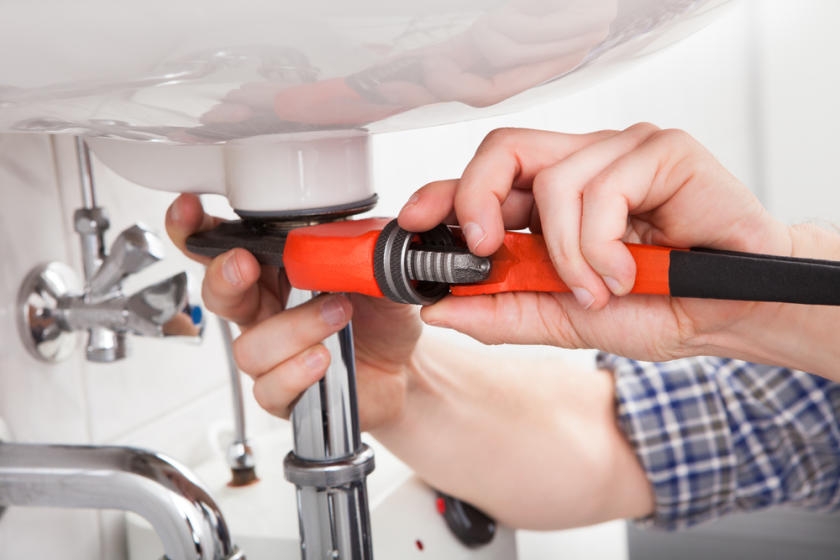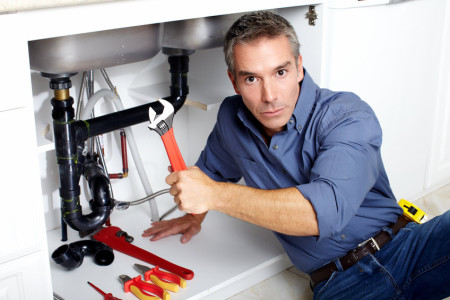Essential Advice for Urgent Issues: What to Do Until Help Arrives
Essential Advice for Urgent Issues: What to Do Until Help Arrives
Blog Article
They are making a number of good pointers relating to Expert Tips for Managing a Plumbing Emergency Until Help Arrives overall in the content which follows.

Plumbing emergencies can strike at any moment, causing stress and possible damages to your home. Whether it's a ruptured pipe, a blocked drain, or a leaky tap, understanding exactly how to manage the situation until a specialist plumbing professional shows up can save you from further difficulties. This article provides crucial emergency situation plumbing tips to aid you minimize damage and regain control throughout a plumbing crisis.
Shut off the Water
The primary step in any pipes emergency is to shut down the supply of water. For localized problems, such as a leaking tap or toilet, switch off the valve near the component. In the case of a significant leak or ruptured pipe, situate your home's major water shut-off valve and transform it off right away. Recognizing the location of these shutoffs beforehand can conserve valuable time throughout an emergency.
Address Little Leakages with Short-term Repairs
Small leaks can promptly end up being substantial problems if left untreated. Make use of these temporary repairs till professional assistance arrives:
While these repairs aren't permanent, they can aid minimize water loss and damages.
Unclog Drains Safely
A clogged up drain can be a discouraging and unpleasant issue. Right here's how to tackle it:
If these methods don't work, avoid utilizing excessive force, as it may intensify the obstruction.
Handle Overflowing Toilets
An overruning bathroom can create prompt disorder. Below's what you need to do:
Turn off Your Water Heater
In certain emergencies, such as a burst pipeline, it's important to turn off your water heater. This protects against overheating or damage to the device when water stops flowing. Switch off the power supply to the water heater (electrical or gas) and let it cool down to stay clear of possible dangers.
Briefly Stop a Burst Pipe
A ruptured pipeline can bring about significant water damages in mins. To reduce the concern:
Call an expert plumber quickly to deal with the problem completely.
Deal With Frozen Pipes Very Carefully
In colder environments, frozen pipelines are a typical emergency. If you presume a frozen pipeline:
Stop Further Damages
Taking quick activity to reduce damage can conserve you time and money in the future. Right here's how:
. Have an Emergency Pipes Kit
Prepare a fundamental pipes emergency package to deal with small issues properly. Your package needs to include:
Having these tools handy can make a considerable difference in your capability to take care of emergencies.
Know When to Call a Professional.
While quick fixes can assist momentarily, particular plumbing problems need prompt specialist attention. Call a plumbing if:.
Without delay contacting an expert makes sure the concern is settled correctly and prevents further complications.
Conclusion.
Plumbing emergency situations can be frustrating, yet with the ideal understanding and devices, you can take care of the scenario effectively until assistance shows up. By turning off the supply of water, attending to little leakages, and making use of short-lived solutions, you can minimize damage and keep your home safe. Remember, these tips are short-lived remedies; constantly get in touch with an accredited plumbing technician to manage the source of the issue. Preparation and fast reasoning are your finest allies in any pipes emergency situation.
Expert Tips for Emergency Plumbing Repairs
Plumbing emergencies can be incredibly stressful and inconvenient. Whether it’s a burst pipe, a clogged drain, or a leaky faucet, these common plumbing emergencies need immediate attention to prevent further damage to your home. But before you panic, it’s important to understand the basics of plumbing repairs and the steps you can take to address these emergencies. In this article, we will share some expert tips to help you navigate through these situations and minimize potential water damage.
Identifying Common Plumbing Emergencies
Leaky pipes and faucets Clogged drains and toilets Burst pipes Low water pressure Water heater problems Essential Tools for Plumbing Repairs
Plunger: Useful for unclogging toilets and drains Adjustable wrench: Needed for tightening or loosening nuts and bolts Pipe wrench: Ideal for gripping and turning pipes Tape measure: Necessary for accurate pipe measurements Plumber’s tape: Helps create watertight seals Understanding Emergency Plumbing Services
Emergency plumbing services are designed to provide immediate assistance for unexpected plumbing issues that can cause significant damage to your home, business, or health. These services are typically available 24/7 and are staffed by experienced plumbers who can quickly diagnose and repair a wide range of plumbing problems.
When a plumbing emergency strikes, time is of the essence. Whether it’s a burst pipe flooding your basement or a gas leak posing a serious risk, emergency plumbing services ensure that help is just a phone call away. These professionals are equipped with the tools and expertise to handle any situation, minimizing damage and restoring your plumbing system to proper working order.
What Constitutes a Plumbing Emergency?
Burst pipes or water supply lines: These can cause extensive water damage and need immediate repair to prevent flooding. Gas leaks or suspected gas leaks: Gas leaks are extremely dangerous and require prompt attention to avoid potential explosions or health hazards. Sewer backups or overflows: These can lead to unsanitary conditions and significant property damage. Clogged drains or toilets causing water to overflow: Overflowing water can damage floors, walls, and other structures. Leaks or water damage causing structural damage: Persistent leaks can weaken the structural integrity of your home or business. No hot water or heating: A lack of hot water can be more than an inconvenience, especially in colder months. Common Causes of Plumbing Emergencies
Aging or corroded pipes: Over time, pipes can deteriorate, leading to leaks or bursts. Improperly installed or maintained plumbing fixtures: Faulty installations or lack of maintenance can result in unexpected failures. Tree roots or other debris infiltrating your sewer line: Roots can grow into pipes, causing blockages and backups. Frozen pipes or water supply lines: In colder climates, pipes can freeze and burst, leading to significant water damage. High water pressure or sudden changes in water pressure: Excessive pressure can strain pipes and fixtures, causing them to fail. Natural disasters such as floods or earthquakes: These events can disrupt your plumbing system and cause severe damage. Steps to Minimize Water Damage
Locate the water shut-off valve: Knowing where the valve is can help you quickly cut off the water supply to the affected area. Turn off the water heater: If there’s a risk of water coming into contact with the heating element, make sure to turn off the water heater to avoid potential accidents. Open faucets and drain pipes: By opening faucets and drain pipes, you can relieve pressure and empty any standing water. Collect and contain water: Use towels, buckets, or bins to collect water and prevent it from spreading to other areas of your home. https://leecountyplumbingandwellservice.com/expert-tips-for-emergency-plumbing-repairs/

I found that review on What to Do During a Plumbing Emergency while doing a lookup on the search engines. Those who liked our blog post if you please remember to pass it around. I take joy in reading our article about Expert Tips for Emergency Plumbing Repairs.
Schedule And Pricing Report this page